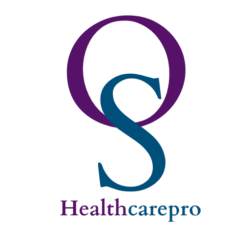🤖AI and Healthcare: Innovation Driving Better Patient Outcomes
November 4, 2025 | by Steven Johnson

The future of AI and Healthcare is unfolding before our eyes — and it’s powered by Artificial Intelligence (AI). What once sounded like science fiction is now quietly reshaping how hospitals diagnose, treat, document, and even communicate with patients. From AI-driven diagnostic tools to predictive algorithms and administrative automation, the healthcare industry is undergoing its biggest transformation since the digital revolution.
But as with every innovation in medicine, AI brings both incredible opportunities and complex challenges.
Let’s explore how AI is redefining healthcare in 2025 — not just through technology, but through the ethical, legal, and clinical lens that every healthcare professional must understand.
🌐 The Rise of AI in Healthcare
In 2025, AI is no longer experimental — it’s operational. Hospitals use AI tools to:
- Detect cancers earlier with imaging algorithms.
- Predict hospital readmissions using predictive analytics.
- Automate clinical documentation in real-time.
- Support clinicians with decision-making based on vast datasets.
The U.S. healthcare system has been slow to adopt certain technologies due to compliance and reimbursement barriers. However, AI is now the fastest-growing segment of health IT, with billions invested in smart diagnostics, digital scribes, and workflow optimization tools.
But it’s not about replacing clinicians — it’s about augmenting human intelligence with machine precision.
🧠 Smarter Decisions with Data
AI thrives on one thing: data. Every chart, lab result, and prescription adds to the massive pool of health information that can reveal trends invisible to the human eye.
Imagine an AI algorithm scanning thousands of cardiology reports and identifying subtle ECG patterns linked to early-stage heart disease. That insight, delivered instantly, could save lives.
AI-driven predictive analytics also enable personalized medicine, tailoring treatment plans based on genetics, lifestyle, and prior outcomes.
Yet, with great data comes great responsibility. The accuracy of AI outputs depends entirely on the quality of the input data — and that’s where healthcare documentation, compliance, and coding professionals play a critical role.
🏥 AI in Clinical Documentation & Coding
One of the biggest frustrations for healthcare providers is documentation burden. Doctors often spend hours clicking boxes and typing notes — time that could be spent with patients.
Enter AI-powered medical scribes and documentation assistants. These tools listen to patient encounters, transcribe them in real-time, and suggest relevant ICD-10 or CPT codes automatically.
But here’s the challenge:
If an AI-generated note leads to an inaccurate code or claim submission, who is legally responsible?
This question is sparking a new wave of compliance training and CEU courses focusing on AI-assisted documentation, coding validation, and liability.
Healthcare organizations must establish clear policies to:
- Review and validate all AI-generated clinical documentation.
- Maintain HIPAA compliance and protect patient data.
- Ensure audit readiness for AI-assisted claims.
🔒 Ethics, Privacy, and Trust
AI doesn’t just process data — it interprets human lives. That’s why trust is the foundation of AI in medicine.
Concerns about bias, privacy, and data misuse are real. If an AI system is trained on biased datasets, it could unintentionally produce inequitable care recommendations — for example, underdiagnosing certain populations.
Therefore, healthcare professionals must learn to question AI, not just use it. Understanding how algorithms are trained, what data they rely on, and where human oversight fits in is crucial to maintaining ethical standards.
Regulatory bodies like HIPAA, CMS, and the FDA are rapidly updating frameworks to include AI-specific compliance guidance — another reason CEU programs in 2025 are emphasizing AI governance and ethical implementation.
⚙️ AI Beyond the Clinic: Administration, Auditing, and Risk Management
AI’s role isn’t limited to patient care. On the administrative side, it’s transforming:
- Claims auditing – detecting anomalies and potential fraud.
- Revenue cycle management – predicting denials and optimizing reimbursement.
- Credentialing and enrollment – validating provider data faster and reducing errors.
For compliance officers, this means adapting audit strategies to evaluate machine-assisted decision-making. CEU programs are now training professionals to audit not just humans — but the algorithms that assist them.
💬 The Human Touch in the Age of Machines
For all its brilliance, AI cannot replicate empathy. Healthcare will always need human compassion, intuition, and judgment — elements that no algorithm can code.
The most successful healthcare professionals in the AI era will be those who know how to blend human care with digital intelligence. They’ll use AI to lighten administrative burdens, uncover insights, and enhance patient outcomes — without losing the personal connection that defines medicine.
🚀 The Future of AI and Continuing Education
AI is here to stay, and so is the need for professionals who understand how to use it responsibly. CEU programs in 2025 are shifting from “how AI works” to “how AI fits into compliance, coding, and patient safety.”
Key CEU topics include:
- AI-assisted documentation and legal accountability
- HIPAA and data security in AI environments
- AI bias and ethics in clinical decision-making
- Using predictive analytics for care coordination
- Regulatory updates from CMS and the FDA on AI-based tools
🧩 Final Thoughts
Artificial Intelligence isn’t replacing healthcare professionals — it’s redefining what’s possible. Those who embrace it with curiosity, critical thinking, and compliance awareness will lead the next generation of healthcare innovation.
In a world where machines can analyze millions of data points in seconds, the ultimate differentiator remains the human heart and the informed mind.
So, the real question isn’t “Will AI take over healthcare?”
It’s “How ready are you to evolve with it?”
If you’re a healthcare provider, compliance officer, or medical coder looking to understand AI’s role in documentation, billing, and compliance — explore CEU webinars that dive into AI integration and legal responsibility.
In case you can’t attend live, sign up for On-demand Replay | DVD | Flash Drive options and learn at your convenience.
RELATED POSTS
View all



